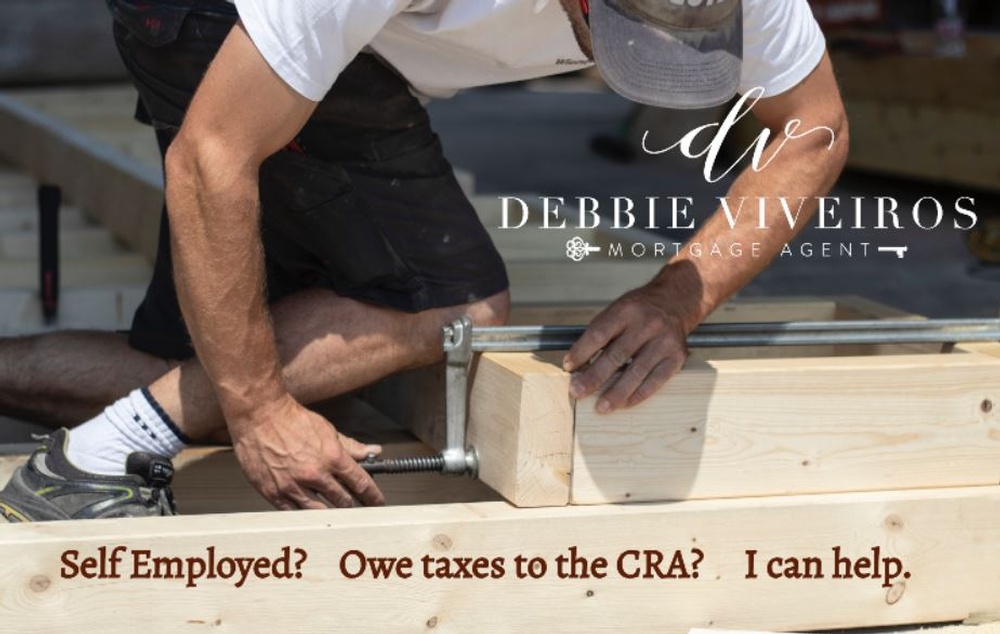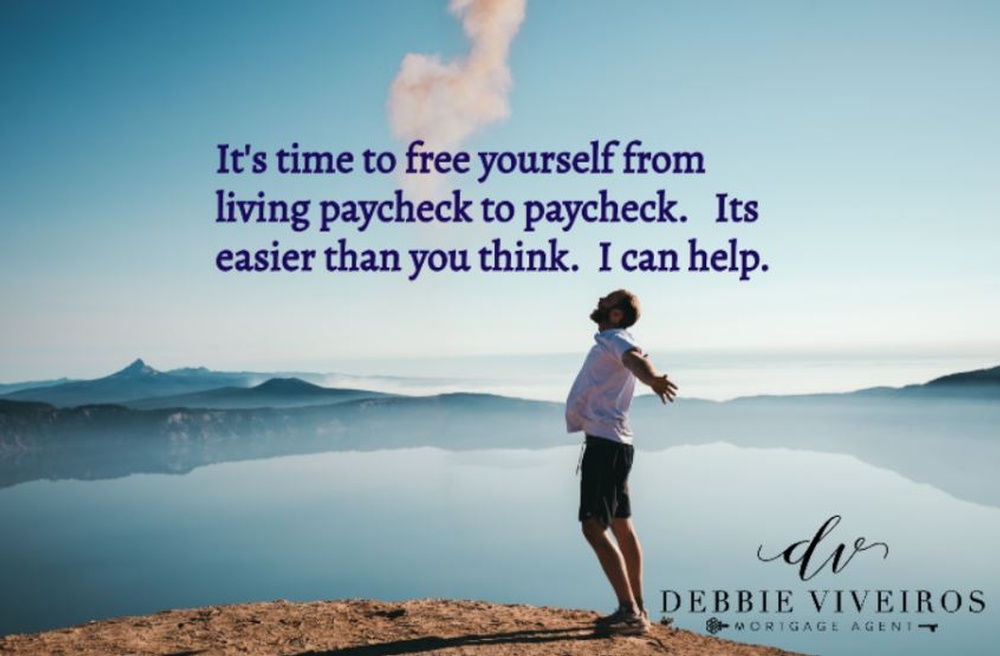Are you Self Employed? Do you owe the CRA for taxes? I can help with a quick loan at 8.99%. Up to 40K for home owners. Very Simple, One Page Application With this Loan there is: NO Mortgage Registration! NO Early Payout Penalty! , It's TOTALLY Open NO Legal fees! Low Interest Rate! 8.99% Can be for ANY purpose Funds in your account within 72 hours of being approved Call today to get additional information. 905-252-0501
-
Self Employed and owing taxes to the CRA?

-
It's Time to free yourself from living paycheck to paycheck

If you live paycheque to paycheque, the idea of somehow having enough money to invest and eventually have financial freedom seems about the furthest thing possible. The truth is no regardless of your income and place in life, a few changes to the way you’re living life can make all the difference. No matter where you are in life, it’s never too late to start learn and reverse course. If you’re still not convinced, there are a few simple ideas to get you started. Create a Budget In order to stop living paycheque to paycheque, you need to know where that paycheque is…
-
What does a mortgage broker do?
A mortgage broker acts as an intermediary between a lender and a borrower. In other words, they facilitate the transaction between you and your bank or mortgage lender. They search for the best mortgage product and interest rate by utilizing their network of lenders and financial institutions.
-
Do mortgage brokers work for the bank or a financial lender?
Mortgage Brokers work for you, not your bank or mortgage lender.
-
What do you charge?
Here’s some great news: Our fee is paid by the lenders we secure your mortgage through, not you. In special circumstances and depending on the length and amount of the loan, we may have to charge a fee. However, we don’t charge our clients in the majority of cases.
-
What will I pay in closing costs?
Closing costs will vary depending on your situation. They may include appraisal fees, survey fees, your legal fees, and realtor commissions. We can help you determine about how much your closing costs will be.
-
Why is a mortgage insurance premium necessary?
If your down payment is less than 20% of the property value, you’re required to pay an insurance premium. For lenders, a down payment of this size is more of a risk, so the insurance premium is a guarantee for the lender in the event of your defaulting on the loan.
-
Can I make my down payment with gifted money?
In most cases, the answer is yes. However, the funding must be from a family member. There are certain circumstances in which you cannot use gifted funds. For example, your mortgage product may have a limit on the percentage of the down payment that can be gifted.
-
How much should I consider spending on a home?
Most mortgage lenders allow you to spend no more than 32% of your monthly income on your mortgage, and newer guidelines allow up to 44% of your monthly income for mortgage payments and other debt payments. Click on our mortgage calculators to help you determine your affordability. You can also download my toolbox app -> https://dlcapp.ca/app/debbie-viveiros
-
Should I consider a mortgage to help with debt?
Yes. In fact, this is a common use of a mortgage loan. Many of our customers obtain a mortgage to consolidate credit card debt, personal line of credit, other loans, or simply to renovate their kitchen, or invest in other opportunities.
-
Why is an appraisal necessary?
Every conventional mortgage that includes a minimum 20% down payment requires an appraisal because the mortgage is uninsured. The lender wants to see that your purchase price is in line with the property’s fair market value. Lenders want to see that you are purchasing a quality property and that they will be able to recuperate the full amount if you default on the loan.
-
What benefits do I receive for mortgage pre-payments?
Pre-payment typically allows you the following privileges: Ability to increase your monthly payment (usually by 15-20%). Keep in mind that you cannot decrease your payments. You are allowed to pay a percentage (usually 15-20%) of your principal per year. You may be able to double your mortgage payment for a month or a number of months. Remember that you are not allowed to exceed the percentage that you’re permitted to pay down annually.
-
Does paying bi-weekly actually save me money or shorten my amortization time?
Yes it does. With a monthly mortgage, you’ll make 12 regular mortgage payments annually. When you pay bi-weekly, you’ll make 26 half-payments, amounting to 13 regular mortgage payments annually. That might not sound like much, but it adds up. A bi-weekly payment schedule could make you mortgage-free years sooner, saving you thousands in interest payments.
-
What minimum down payment do I need?
You can provide as little as 5% of the total price of the home if you have good credit. We also offer an Alternative Down Payment Program that allows buyers to borrow their down payment.

